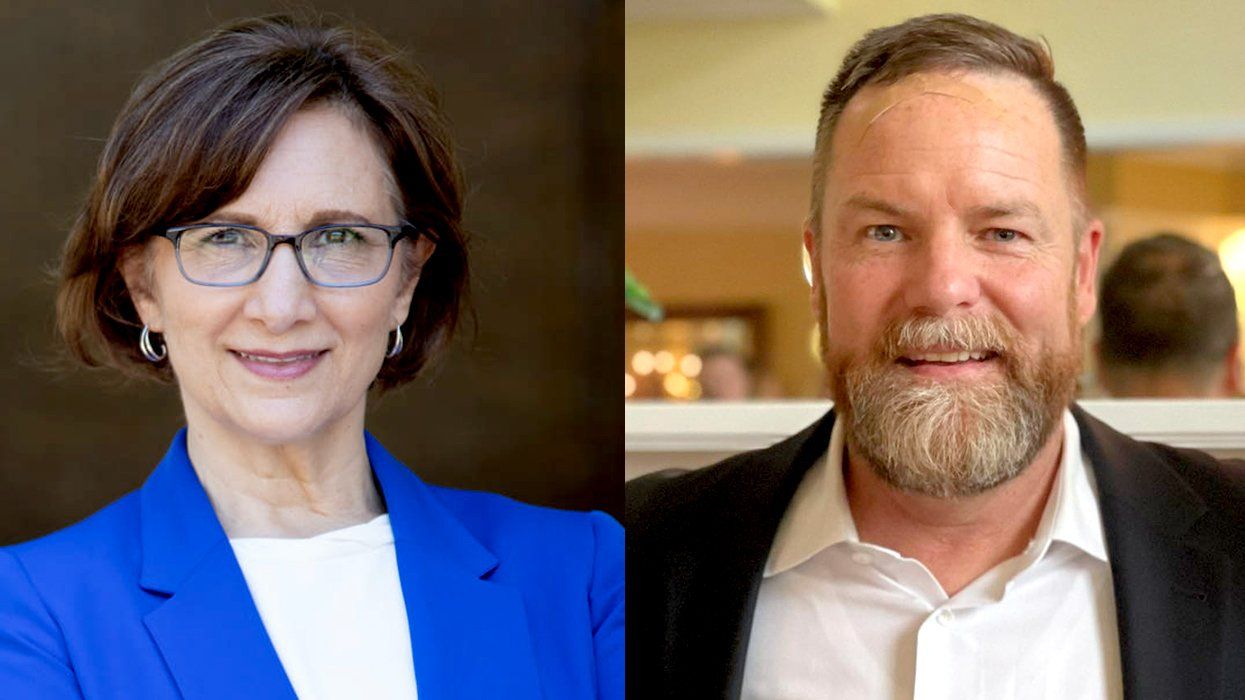Congressional Republicans endorsed book bans in schools during a hearing Thursday at which most of those who testified were from right-wing groups.
Republican U.S. Rep. Aaron Bean of Florida, chair of the House Subcommittee on Early Childhood, Elementary, and Secondary Education, said efforts to remove books from school libraries aren’t really bans, as the books remain available elsewhere.
“If you can check out a book from a public library, it is not banned. If you can order a book from Amazon and have it delivered to your home the next day, it is not banned,” he said in his opening remarks. “In fact, the most-removed books are still wildly popular on Amazon.”
However, as American Library Association President Emily Drabinski pointed out in a recent interview with The Advocate, “Not everyone can afford to buy every book they want to read.”
Bean denounced President Joe Biden’s appointment of “a book review czar to monitor the actions of local school boards and potentially penalize them for simply reviewing books. I see this as a dangerous step and a violation of federalist principles.”
Lindsey Smith, representing the anti-LGBTQ+ group Moms for Liberty, also claimed these efforts aren’t really bans. “I would like to address the lie that parental groups and Moms for Liberty are ‘book banning,’” Smith said, according to The Hill. “If removing a sexual explicit book from school libraries is what you see as book banning, then you need to reevaluate your language.”
Smith referred to books such as Gender Queer: A Memoir by Maia Kobabe and asked the subcommittee members if they want to let students read scenes like one in which “a strapped-on penis is visible on the partner with oral sex being performed graphically.”
Max Eden, a research fellow at the conservative American Enterprise Institute, also described certain sexually explicit passages from books and asked, “Why is it, exactly, that left-wing nonprofits, the media, and the Biden administration are so keen to enforce stocking school libraries with pornographic material.”
“It’s perfectly natural, normal, and responsible for parents to prefer that school districts not stock their libraries with pornographic material,” he continued. “And it’s good for school board members to meet the moral preferences of parents.”
Utah Republican Congressman Burgess Owens claimed during the hearing that the Bible has been banned from public schools, calling it the worst book ban in U.S. history. However, the Bible has not been banned; the Supreme Court has held that schools can’t force students to read the Bible or pray.
Democratic U.S. Rep. Suzanne Bonamici of Oregon, ranking member of the subcommittee, pushed back at the conservatives. She said most of the efforts to remove books are being led by a “well-funded, vocal minority of parents and conservative organizations pushing their own personal agenda on others,” according to the Washington Blade.
“We can all agree that books in school libraries should be age-appropriate,” she continued. “And we all used to agree that the federal government should not dictate school curricula or what books are in school libraries.”
“At least seven states have passed draconian laws in the past two years subjecting school librarians to years of imprisonment and fines for providing books deemed to be explicit, obscene, or harmful,” Bonamici said. She further noted research by PEN America, a group supporting freedom of expression, showing that “41 percent of banned content focuses on LGBTQI+ themes, protagonists or characters,” while “40 percent focuses on characters of color.”
Jonathan Friedman, PEN America’s director of free expression and education programs, testified to the subcommittee that book-banning efforts have risen to a “wildly unprecedented” level, the Blade reports. There is “movement to encourage people to censor ideas,” he said.
Members of Congress also addressed book bans in a Wednesday briefing convened by U.S. Rep. Jamie Raskin, a Democrat from Maryland, and the Interfaith Alliance, an LGBTQ-inclusive religious group.
“We need more politicians who are reading books and fewer politicians banning books,” Raskin said, as reported by the Blade. “The censorship of books, censorship of curriculum, censorship of teachers, censorship of ideas and free speech and free discourse are always an exercise of power,” he added.
He noted that when far-right Republican Congresswoman Marjorie Taylor Greene of Georgia showed sexually explicit photos, purportedly of Hunter Biden, in the House in July, he said, “Marjorie, you know, if those pictures had been in a book, you would have banned the book, but you just showed them to everybody.”
In response to Bean’s criticism of the so-called book ban czar, the Department of Education released a statement to the Blade. “Across the country, communities are seeing a rise in efforts to ban books — efforts that are often designed to empty libraries and classrooms of literature about LGBTQI+ people, people of color, people of faith, key historical events and more,” the statement reads. “These efforts are a threat to students’ rights and freedoms. To address this issue, the Office for Civil Rights (OCR) brought on Deputy Assistant Secretary Matt Nosanchuk, whose portfolio will include serving as the Department’s coordinator on responding to book bans, among other topics and responsibilities.
“OCR will continue its work to support the public and school communities in understanding the civil rights impact book restrictions can have, in violation of federal law, and take enforcement action when necessary. … OCR will hold trainings for schools, libraries, teachers, and other education stakeholders to help them navigate their duty to provide equal access to education and a supportive learning environment for all.”
Pictured: U.S. Reps. Suzanne Bonamici and Aaron Bean




































































Charlie Kirk DID say stoning gay people was the 'perfect law' — and these other heinous quotes